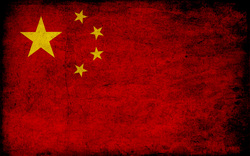
An expert on human rights in China suggests that country's latest edict claiming it is easing up on the one-child policy shouldn't be believed.
In most instances, couples in the People's Republic of China can only have one baby – but there are some exceptions. China now says it's changing the policy to permit two children, but only under certain circumstances – such as at least one parent being an only child. Previously, both parents had to be an only child to qualify for the exemption.
In most instances, couples in the People's Republic of China can only have one baby – but there are some exceptions. China now says it's changing the policy to permit two children, but only under certain circumstances – such as at least one parent being an only child. Previously, both parents had to be an only child to qualify for the exemption.
Reggie Littlejohn of Women's Rights Without Frontiers told reporters that Friday's announcement isn't really a change, just a slight "tweaking."
Littlejohn "They're saying We don't have enough people to support our elderly population. Our labor force is declining. We have a gender imbalance," she shares. "These are all economic and demographic reasons for allowing some couples to have a second child. Completely absent from the discussion is the issue of human rights violations."
In a column posted yesterday, Littlejohn says headlines stating that China has "eased" or "relaxed" its one-child policy "are detrimental to sincere efforts to stop forced abortion in China, because they imply that the one-child policy is no longer a problem."
China has used forced abortion and sterilizations to enforce its one-child policy, and Littlejohn says Beijing is likely to do so to stand firm on the two-child policy. It's even been enforced in rural areas where two children are permitted.
"In the countryside, forced abortion is widely practiced," says the human rights activist. "In order to have that first child or that second child, you have to have a birth permit – and also there is a waiting period between the two children. So if you do not have a birth permit for either the first child or the second child, you will end up with a forced abortion." Or, she adds, if you are wealthy you can pay a fine and have the baby.
Women's Rights Without Frontiers will continue to encourage signatures on its website for a petition calling for the end of forced abortion and sterilization in China.
Littlejohn "They're saying We don't have enough people to support our elderly population. Our labor force is declining. We have a gender imbalance," she shares. "These are all economic and demographic reasons for allowing some couples to have a second child. Completely absent from the discussion is the issue of human rights violations."
In a column posted yesterday, Littlejohn says headlines stating that China has "eased" or "relaxed" its one-child policy "are detrimental to sincere efforts to stop forced abortion in China, because they imply that the one-child policy is no longer a problem."
China has used forced abortion and sterilizations to enforce its one-child policy, and Littlejohn says Beijing is likely to do so to stand firm on the two-child policy. It's even been enforced in rural areas where two children are permitted.
"In the countryside, forced abortion is widely practiced," says the human rights activist. "In order to have that first child or that second child, you have to have a birth permit – and also there is a waiting period between the two children. So if you do not have a birth permit for either the first child or the second child, you will end up with a forced abortion." Or, she adds, if you are wealthy you can pay a fine and have the baby.
Women's Rights Without Frontiers will continue to encourage signatures on its website for a petition calling for the end of forced abortion and sterilization in China.


 RSS Feed
RSS Feed